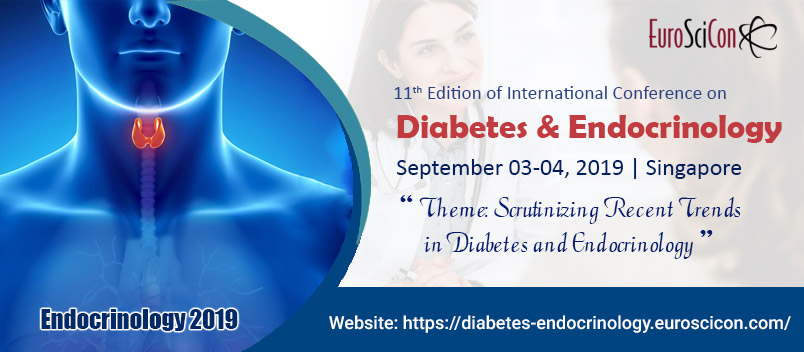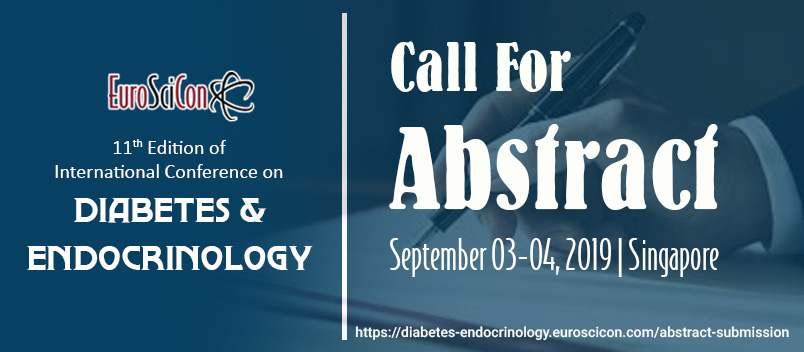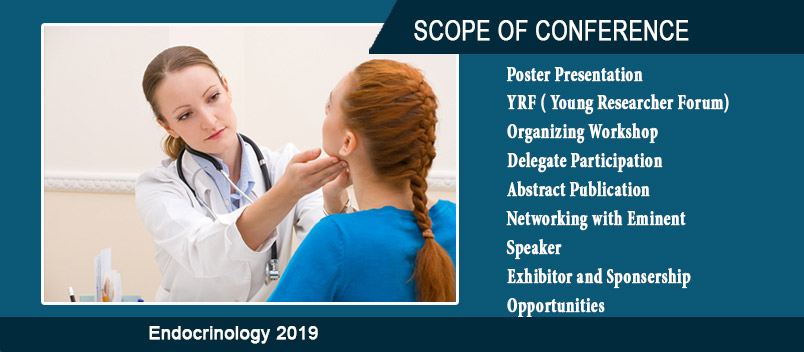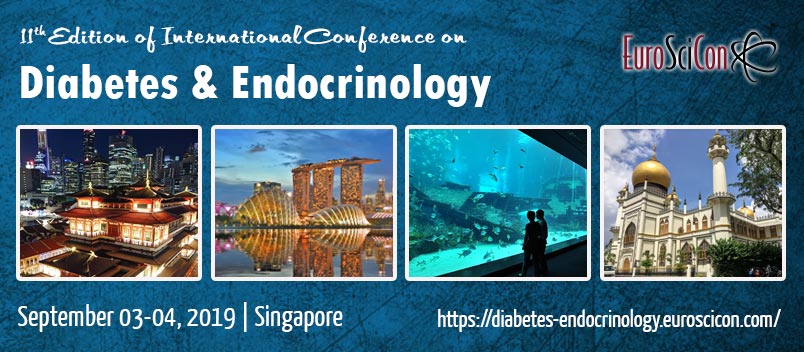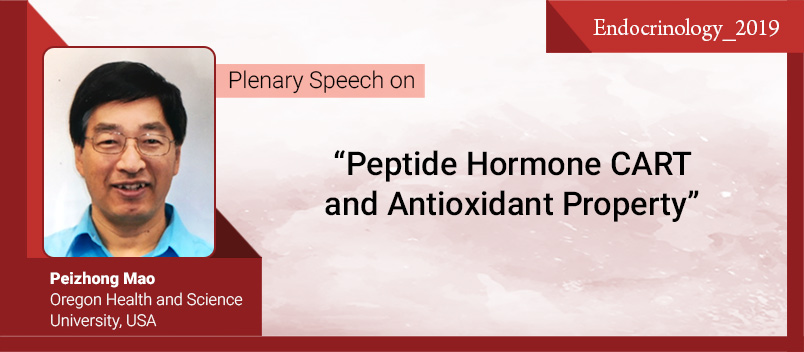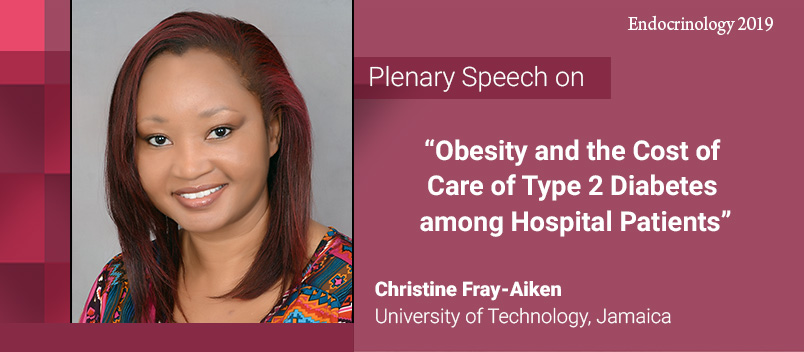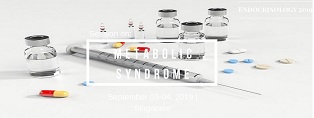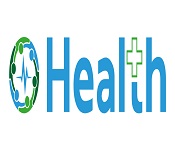Endocrinology 2019
Invitation
Welcome to the 11th Edition of International Conference on Diabetes and (Endocrinology 2019). It is an exceptional occasion exhibiting the numerous aspects and an assorted variety of Endocrinology and Diabetes. Endocrinology 2019 will be held in Singapore during September 03-04, 2019. More than 200 diabetes experts, medical attendants, and medicinal services specialists are relied upon to go to the two-day gathering.
High blood glucose slaughters about 3.4 million individuals around the world, every year. Over 80% of these passings happen in low-and center pay nations, and practically half are individuals matured under 70 years. Diabetes passings will be multiplied somewhere in the range of 2005 and 2030, according to WHO projections.
About Conference
Scientific Sessions
Track 1: Diabetes and Metabolism
The metabolism of people having diabetes differs from the metabolism of people without it. In type 2 diabetes, the effectiveness of insulin is reduced and in type 1 diabetes insulin levels are very low. The only difference is the volume and/or effectiveness of the insulin produced by the body. In type 1 diabetes, the proper functioning of metabolism is dependent on the delivery of insulin, usually either from injection or a pump. Type 2 diabetes most typically produces significantly more insulin than non-diabetic people resulting from a higher ratio of body fat to muscle and the people will be with overweight.
Track 2: Thyroid Disorders
Thyroid is a disease that affects functioning of thyroid gland which is endocrine organ found in the front of the neck that produces thyroid hormones and these are useful for body metabolism. Two types of thyroid hypothyroidism and hyperthyroidism, in both the types there may be swelling of a part of the neck, which is also known as goiter. The Thyroid Disorders are Graves' Disease, Thyroid Cancer, Thyroid Nodules and the symptoms are Weight gain (even though they are not consuming more food), Joint or muscle pain, Memory problems etc.
Track 3: Adrenal Disorders
The adrenal glands are found on the top of the kidneys and also they are known as suprarenal and endocrine glands. They secrete a variety of hormones like adrenaline, steroids aldosterone and cortisol. Each gland has an outer cortex which produces steroid hormones and an inner medulla. Adrenal gland disorders are High blood pressure, High blood sugars and they make too much or not enough hormones. In Cushing's syndrome, cortisol will be more, and in Addison's disease, it is too little and in some people is born with unable to make enough cortisol.
Track 4: Metabolic Syndrome and Obesity
Metabolic syndrome is closely linked to overweight or obesity. It is also linked to a condition called insulin resistance. Normally, digestive system breaks down the food into glucose. The main features of metabolic syndrome are insulin resistance, hypertension, abnormal cholesterol, and an increased risk for clotting and people diagnosed with this syndrome are usually overweight or obese. The people with metabolic syndrome can increase your risk of developing Diabetes, Cardiovascular disease.
Track 5: Cardiovascular Diseases And Diabetes
Cardiovascular disease affects the circulation and it poor circulation leads to diabetes complications. Diabetes is treatable, when glucose levels are under control but when it increases it leads to risk of heart disease and stroke. So, most of the people with diabetes, particularly type 2 diabetes is with High blood pressure. 68% of people age 65 or older with diabetes die from some of the heart diseases and 16% die of stroke. Adults with diabetes are two to four times more likely to die from heart disease than adults without diabetes.
Track 6: Bone/Calcium Metabolism

Calcium metabolism is the regulation and movements of calcium ions (Ca2+) in and out of different body compartments, such as blood plasma, gastrointestinal tract, extracellular and intracellular fluid, and bone tissue. Plasma calcium homeostasis, the regulation of calcium ions in the blood plasma within narrow limits is an important aspect of calcium metabolism. In this process, bone tissue acts as a calcium storage center for deposits and withdrawals as needed by the blood, via continual bone remodeling.
Track 7: Gestational Diabetes
Gestational Diabetes Mellitus is defined as Impaired Glucose Tolerance with onset or first recognition during pregnancy. Worldwide, 1 in 10 pregnancies is associated with the diabetes, 90% of which are GDM. Undiagnosed or inadequately treated GDM can lead to significant maternal & fatal complications. Moreover, women with GDM and their children’s are at increased risk of developing type 2 diabetes later in life.
Fetal risks include spontaneous abortion, intra-uterine death, stillbirth, congenital malformation, shoulder dystocia, birth injuries, neonatal Hypoglycemia and infant respiratory distress syndrome. Longterm clinical effects of GDM are important contributors to the burden of non-communicable diseases in many countries.
Track 8: Neuroendocrinology

Neuroendocrinology is the study of physiology interaction between central nervous system and the endocrine system. The nervous and endocrine systems they act together to regulate the physiological process of the human body.
Track 9: Pituitary Disorders
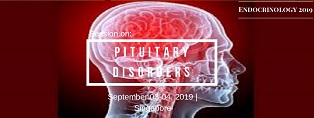
The pituitary is a gland located on base of the brain. Its size is about the size of kidney bean. The pituitary gland is also called Master glad and is made up of anterior and posterior gland. It produces and regulates the hormones of the body. The disorders of the pituitary gland are Cushing’s syndrome, menstrual changes or loss of menstrual periods in women and erectile dysfunction.
Track 10: Pediatric Endocrinology

Pediatric Endocrinology is medical subspecialty dealing with endocrine gland disorders such as child’s growth, sexual development in childhood and diabetes etc. The glands of endocrine system produces hormones and they are chemical substances that regulates many important body functions.
Track 11: Endocrine Cancers

The endocrine system is a collection of glands in several areas of the body. The glands secrete hormones directly into the circulatory system for delivery to certain organs. Thyroid cancer is the most common type of endocrine cancer, diagnosed in about 64,000 people each year. In most cases, it's a very treatable form of cancer. Endocrine cancer can also affect the pancreas, which is an organ in the belly.
Track 12: Diabetic Nephropathy

Diabetic nephropathy, progressive kidney disease due to longstanding diabetes, is the leading cause of end-stage renal disease in the Western world. However, not all patients with diabetes-mediated hyperglycaemia will develop this disease. It appears that both environmental and genetic factors play a role in the development of diabetic nephropathy, making diabetic nephropathy a complex disease.
Track 13: Overweight & Obesity

Overweight and obesity are defined as abnormal or excessive fat accumulation that may impair health. Body mass index is a simple index of weight for height that is commonly used to classify overweight and obesity in adults. It is defined as a person's weight in kilograms divided by the square of his height in meters. People who are overweight or have obesity have added pressure on their body's ability to use insulin to properly control blood sugar levels, and are therefore more likely to develop diabetes.
Track 14: Diabetic Retinopathy

Diabetic retinopathy (DR) is defined as the presence of typical microvascular signs in a person with diabetes; these signs are non-specific and may also be seen frequently in people without diabetes. DR is categorized as ‘non-proliferative and proliferative. The latter stage is associated with a high risk of visual loss. Diabetic macular edema (DME) represents thickening near the foveal area, can occur in either stage and is a very frequent cause of impaired vision. Majority patients with diabetes are unaware of their DR condition – mostly are asymptomatic in the early stage and presented late with sight-threatening diabetic retinopathy.
Track 15: Care & Prevention of Endocrinology, Diabetics & Metabolism

Endocrinology is a division of biology and medicine dealing with the endocrine system, its functions, diseases, and its specific secretions knows as hormones. It is also concerned with the integration of developmental events proliferation, growth and differentiation and the psychological or behavioral activities of metabolism, growth, and development, respiration, sleep, excretion, mood, stress, lactation, movement, caused by hormones. These hormones are responsible for performing several important functions in our body. Physiological, cellular and molecular studies in whole animals or humans will be considered for mechanisms of hormones and growth factor action, hormonal and nutritional regulation of metabolism, inflation, micro biome and energy balance and temporal analysis of hormone secretion and metabolism.
